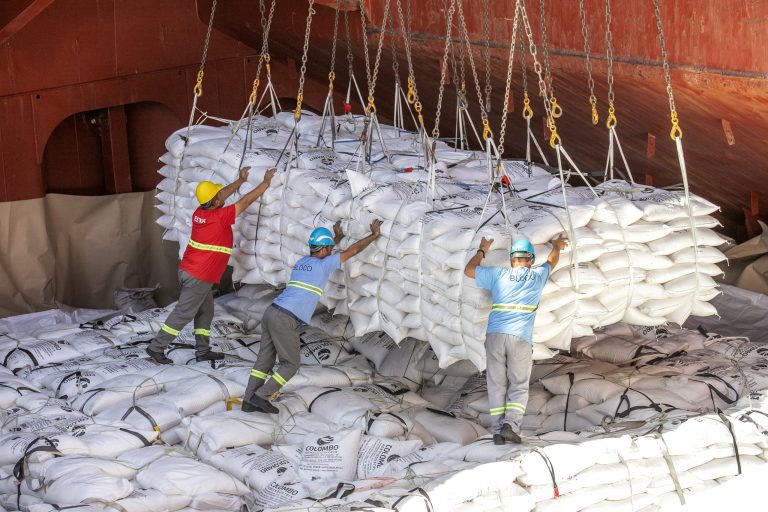São Paulo – Brazil’s trade balance with Arab countries closed 2023 with a record USD 8.67 billion surplus, a 218.6% increase over the previous year. According to data compiled by the Market Intelligence department of the Arab-Brazilian Chamber of Commerce (ABCC), exports in 2023 rose 9.2% over 2022 to USD 19.3 billion. Imports, in turn, fell 28.9% to USD 10.6 billion. The trade flow (sum of imports and exports) for the period was USD 30 billion, an 8.3% drop from 2022. Regarding volume, Brazilian exports tallied 53.7 million tonnes, up 5.8%, and imports totaled 19.9 million tonnes, down 1.7%. Pictured above, a sugar shipment.
The main Brazilian exports to Arab countries were sugar, with USD 4.93 billion, poultry (USD 3.2 billion), iron ore (USD 2.7 billion), maize (USD 1.7 billion), and soybean (USD 1.35 billion). The leading Arab imports to Brazil were oil and its byproducts, with over USD 5.7 billion, and fertilizers, with more than USD 3.5 billion.
The president of the ABCC, Osmar Chohfi, said last year’s result showed the trust that Arab countries have in Brazil as a supplier of their food security. “This also means a [high] degree of competitiveness in exports of animal protein, grains, iron ore, and how the Arab world trusts the quality of Brazilian exports,” said Chohfi.
The Arab bloc is the third main buyer of Brazilian products, behind China and the United States, with a 5.7% share of Brazilian exports. In 2023, Brazilian foreign sales totaled USD 339.6 billion, yielding a USD 98.8 billion surplus. Arab countries accounted for 8.7% of the surplus. “The surplus with the Arab world is even higher than the Arabs’ share in Brazilian foreign trade, around 5% to 6% annually. This is also very important. It means that Brazil’s trade framework with Arab countries is very solid and advantageous,” said Chohfi.
The ABCC president said that, even with solid numbers and an established partnership, there are opportunities to expand the trade relationship to more segments and beyond exports and imports.
“We can think, for example, about pharmaceuticals: Brazil has a significant generics industry. This could even give rise to joint projects. We have a recent example of sales of Embraer aircraft, a product with very high added value. But we also have other sectors – precious stones, granite, hospital supplies, etc. There is a range of Brazilian products that could have a more significant share in the trade basket, and that is what the ABCC intends to work on – the consolidation of traditional trade, opening of new fronts, and inclusion of new companies, including small and medium enterprises.”
Among the main destination countries for Brazilian exports were Saudi Arabia, the United Arab Emirates, Algeria, Egypt, and Iraq. The leading suppliers to Brazil were Saudi Arabia, Algeria, Morocco, the UAE, and Qatar.
Translated by Elúsio Brasileiro




